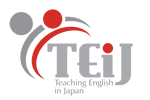The late-1980's saw an explosion in the number and size of eikaiwa schools throughout Japan. Internationally established names like Berlitz battled with local companies like NOVA, GEOS, ECC, Aeon and Bilingual in a fiercely competitive industry. Thousands of smaller chains and one-man operations survived on the crumbs left behind. Some of the big names, like Bilingual, and many of the small fry didn't last more than a few years, especially once the economic bubble burst in the early 90's. Nova grew to be the Big Daddy of them all, with 900 schools across the country and employing as many as 6,000 foreign teachers. So it came as a big blow to the entire eikawa industry when Nova went bust in 2007, months after the government had slapped a penalty on the company for irregular (to say the least) business practises. Another of themajor chain school, GEOS, went bust in 2010 amid charges of financial irregularities by its founder.
The big chain schools never presented a very academic recruitment message to prospective students, relying instead on the use of famous personalities, large-scale advertising or hard-core sales pitches by school 'counsellors'. One story tells of a young woman who walked into a certain eikawa school thinking it was a travel agency and leaving two hours later, having signed up for English lessons to the tune of 6 month's salary and no longer able to afford the trip she had been planning. The still generally poor level of English ability in Japan is proof that these companies were largely ineffective as places of education. They survived by placing pressure on their underpaid school staff to meet quotas by bringing in large numbers of ever-gullible new students. But the desire to master English or at least have a chance to hang out with foreigners has outlived the usual short lifespan of trends in Japan and though the eikawa giants have been taken down several notches, the industry as a whole manages to survie.
With English now more than ever the "global language" eikaiwa schools do provide a service that the people seem to want, and a growing number of Japanese corporations insist that English is a skill they need. So the business is still providing a foot in the door for many westerners, some without teaching qualifications or experience. A few schools hire their teachers abroad and most will provide sponsorship for a working visa. As long as you are a native speaker, have a university degree and are prepared to complete a training course and see out your contract, you should be offered a job with a salary in the 250~300,000 yen range. Higher qualifications and a business background might get you a more lucrative business-teaching position. Other possible benefits include transportation payments, subsidized housing and the cost of a return trip to Korea to change your visa status.
Smaller schools often require job applicants to already have a valid working visa or spouse visa as well as varying standards for qualifications and experience. More and more schools are looking for people to teach young children. Many schools advertise things like their out-of-the-way location, use of a car or free housing as incentives. These schools don't usually pay much more than the big boys but they do offer more flexibility and less of a production-line atmosphere.
Related pages:
Teaching Jobs in Japan | The JET Program | Private Schools

